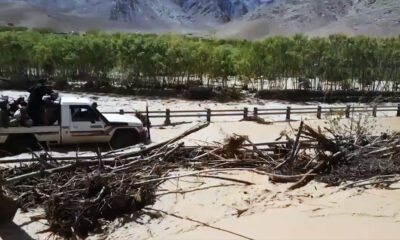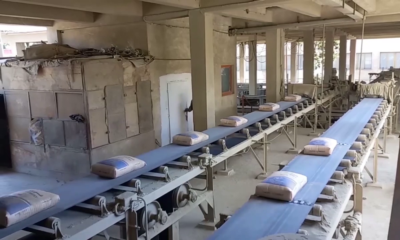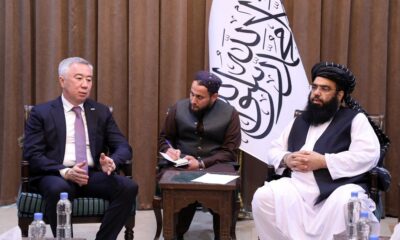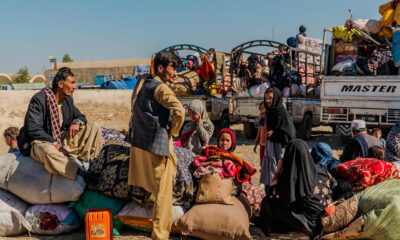Latest News
IEA says Pakistan has still not agreed to meeting over refugees
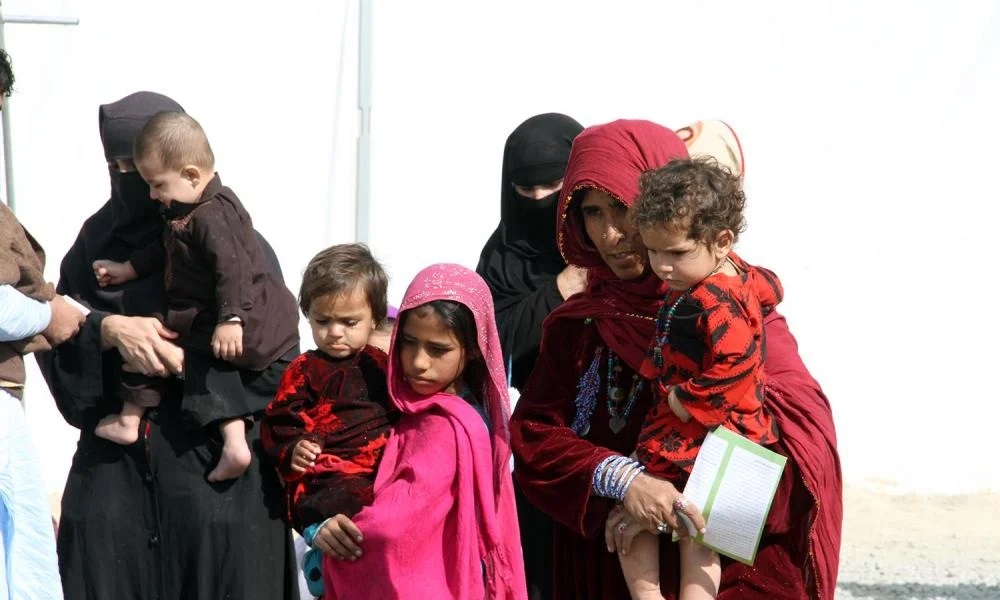
With eight days left until Pakistan’s deadline for all undocumented Afghan refugees to leave the country, the Islamic Emirate says Islamabad has not yet agreed to meet with IEA officials in the presence of the United Nations.
The Ministry of Immigrants and Returnees Affairs of the Islamic Emirate published a newsletter on Sunday and said that Abdul Rahman Rashid, Deputy Professional of the Ministry, met with Leonard Zulu, the United Nations High Commissioner for Refugees in Afghanistan, about the forced deportation of Afghan refugees from Pakistan.
“Because the Pakistani side did not agree to the tripartite meeting – Afghanistan, Pakistan and the United Nations High Commissioner for Refugees – in that country, the ministry decided to hold the aforementioned meeting in Kabul and the issue will be discussed through the ministry. The foreign affairs ministry of the Islamic Emirate, the partner and United Nations commissioner, should also be included,” said the ministry.
Quoting Zulu, the IEA said in its newsletter that Pakistan needs to announce its decision on whether it will hold this meeting or not.
At the beginning of this month, Islamabad gave a deadline to all undocumented immigrants to leave Pakistan by November 1 or face arrest and deportation. This affects over 1.3 million Afghans.
Calls have been made by organizations in Pakistan, by the UN and other countries for Pakistan to overturn its decision.
Meanwhile, last Thursday, the US State Department asked all of Afghanistan’s neighbors, including Pakistan, to allow Afghans seeking safety to enter their territories.
Matthew Miller, the spokesman of the US State Department, said in a news conference: “I want to say that we ask all countries, including Pakistan, to comply with their obligations in dealing with migrants and asylum seekers and to respect the principles of prohibition of forced return.”
Officials of the Islamic Emirate have also asked Pakistan to reconsider its decision to deport Afghan refugees.
The government of Pakistan has also in recent days accelerated the detention of Afghan refugees in several major cities, including Islamabad.
According to Pakistani media, the Khyber Pakhtunkhwa Police destroyed dozens of shops in a former market run by Afghan immigrants in Peshawar Bord area on Sunday – without any warning. Before this, Islamabad police destroyed a number of houses of Afghan immigrants in Morgul area.
As the deadline for the deportation of Afghan refugees from Pakistan approaches, the Islamic Emirate has established a camp for the short-term stay of deported refugees near Torkham port in Nangarhar province. This camp can hold 500 people.
The local authorities of the Islamic Emirate say that food, transportation and health services will be provided during the temporary stay of the returning migrants in the camp.
According to officials, as of Friday (October 20), approximately 52,000 Afghans, including women and children, have returned to their homeland.
Latest News
Eight dead in rain across Afghanistan over past four days

Mullah Janan Saiq, the spokesperson of the Ministry of Natural Disasters, says that eight people have died, three people have been injured and 20 hectares of agricultural land have been destroyed as a result of the rains and floods in the past four days.
Saiq also said that as a result of the recent rains in the country, 140 houses were damaged or destroyed and 20 kilometers of roads were also destroyed across the country.
According to him, 30 cows were also lost.
“Fortunately, as a result of the recent rains, the water level in the country has increased, the underground water has been strengthened and the farmers are happy,”
he said.
According to him, the Ministry of Natural Disasters has directed its directorates in the provinces to use all their facilities to help the victims.
Latest News
Ghori State Cement in Baghlan increases production
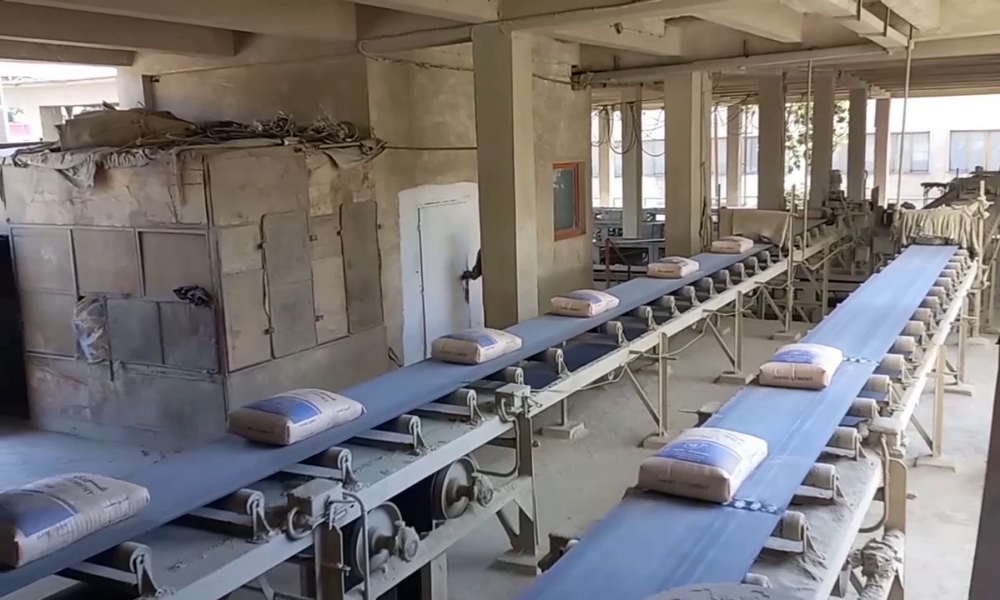
Officials at Ghori State Cement in Baghlan province say the amount of cement produced at this plant has increased compared to the past.
According to company officials, 150,000 tons of cement was produced in 1402 [solar year] and they are trying to increase the amount to 180,000 tons this year.
“Last year, we successfully produced 150,000 tons of cement and sold it to the market. Fortunately, in 1402, we had more than 200 million afghanis in revenue,” said Abdul Wakil Qayumi, financial and administrative deputy of the company.
The plant officials stated that efforts are underway to increase the production capacity, and with the increase of the production capacity, they will produce 1000 bags of cement per day.
“Currently, our four ovens are active, and we produce approximately 1,000 to 1,200 tons of cement in twenty-four hours,” said Mohammad Tahir, packaging manager for the company.
In this company, jobs are created for 750 individuals, and some workers have asked the traders to invest in the country and provide work for young people.
“Some more factories should be built in our country so that less foreign cement is imported into the country and we use our own products,” said one of the company workers.
Ghori Baghlan Cement Company was established about 40 years ago and is considered one of the largest cement production companies in Afghanistan.
The management of this company is carried out by the National Development Corporation (NDC).
Latest News
Regional countries should jointly expand stability and development: Deputy PM
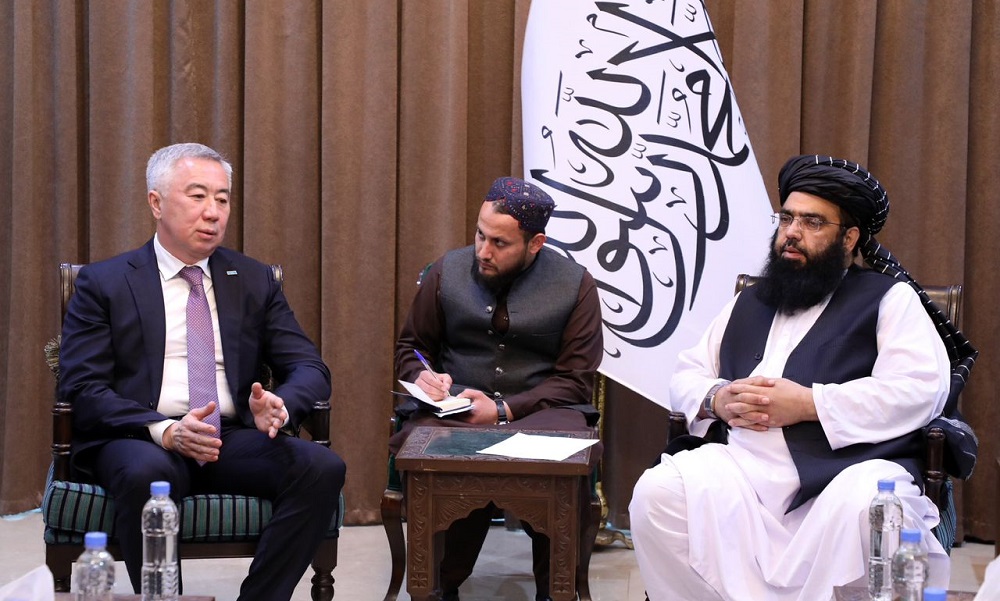
Mawlawi Abdul Kabir, Political Deputy Prime Minister, has said in a meeting with the Deputy Prime Minister of Kazakhstan in Kabul that regional countries should play their role in the implementation of large regional projects.
Kabir also invited Kazakh businessmen to invest in Afghanistan, his office said in a statement.
He added that the Islamic Emirate fully controls Afghanistan’s borders, has eliminated drugs and corruption, and restored national sovereignty.
According to the statement, Deputy Prime Minister of Kazakhstan Serik Zhumangarin appreciated the progress made by the Islamic Emirate in Afghanistan and said that his country is ready for long-term trade, transit and investment relations with Afghanistan.
Zhumangarin expressed his country’s readiness to grant scholarships to Afghan youth and added that Afghanistan is currently an example of a peaceful country in the region, and due to this, the world wants to establish relations with the Islamic Emirate in various fields.
He also called for the start of direct flights between Kabul and Almaty and said that his country is ready for bilateral cooperation with the Afghan government in the cultural field.
-

 Latest News5 days ago
Latest News5 days agoOver 1,000 Afghan refugees forced out of Pakistan in one day
-

 Sport3 days ago
Sport3 days agoAfghanistan beat Iraq 5-3, inch closer to Futsal World Cup berth
-

 Regional3 days ago
Regional3 days agoNew UK sanctions target Iranian drone industry
-

 Regional4 days ago
Regional4 days agoTurkey accuses U.S. of double standards over Gaza in rights report
-

 Latest News3 days ago
Latest News3 days agoEU allocates 17 million euros to support Afghans on the move
-

 Latest News2 days ago
Latest News2 days agoPakistan extends registered Afghan refugees’ stay till June 30
-

 World4 days ago
World4 days agoUS student protests over Gaza intensify despite arrests
-

 Regional2 days ago
Regional2 days agoChina to host Hamas, Fatah for Palestinian unity talks


